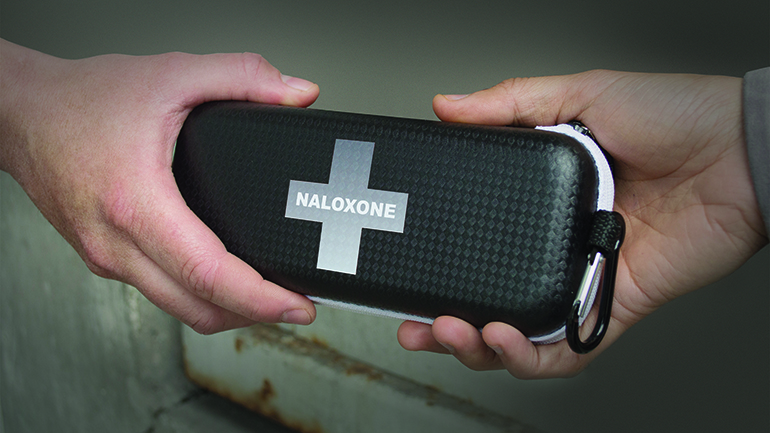Today marks the seventh anniversary of BC declaring a public health emergency in response to rising overdose deaths fueled by the toxic drug supply. Overdose deaths reached 474 in 2015, the year before the declaration, but the fatalities ballooned to nearly 23-hundred by the end of last year. BC broke several grim records last month, including the most overdose calls to paramedics in a single day and the highest 30-day average for overdose calls. Leslie McBain with the advocacy group Moms Stop the Harm says the illicit drug supply is increasingly poisonous and there aren’t enough tests for people who use drugs to know whether their substances are safe.
The aunt of the 17-year-old boy who was fatally stabbed on a bus in Surrey this week says he was a good kid who helped look after his younger siblings. Ethan Bespflug (BES’-flag) was stabbed Tuesday night. Andrea Van Der Gracht says the teen loved fishing with his stepfather and spending time with his friends. Police have yet to make any arrests and have described the crime as targeted, but with no connection to gang conflict.
Carman Hendry, the airport manager of Northwest Regional Airport in Terrace-Kitimat, says some flights out of the airport in northwestern BC have been cancelled due to an ash cloud from a Russian volcano. Air Canada says the ash from the Shiveluch (SHEVE’-lush) Volcano grounded some of its regional flights to and from Prince Rupert as well. The airline says more cancellations may occur depending on the direction of the ash cloud. The volcano on the Kamchatka Peninsula erupted Tuesday and sent an ash cloud 10 kilometres into the air.
BC is adding a dozen new centres focused on providing mental health and addiction services as well as primary care for young people aged 12 to 24. Mitzi Dean, minister of children and family development, says it’s easier for youth and their families to take the difficult first step of asking for help when there is a centre in their community. She says the centres offer evidence-based care, including mental health treatment, peer support, primary and sexual health care and substance-use services. There are currently 15 foundry centres in communities across BC.
The BC government is spending 38-million dollars over six years to fund a LiDAR (LIE’-dar) survey to improve land management. The ministry says LiDAR, also known as light distance and ranging elevation data, uses aerial remote sensing technology to map the Earth’s surface, creating highly detailed and accurate three-dimensional renderings. Unlike the province’s current digital landscape models, it says LiDAR-based mapping includes detailed representations of forests, bodies of water, as well as buildings and other infrastructure. Nathan Cullen, minister of land, water and resource stewardship, says the data will help the province make better decisions when it comes to climate resiliency.
A non-partisan wildlife charity in BC says animal traps are responsible for catching at least 173 domestic cats and dogs over a five-year period in Canada. Fur-Bearers says they found 56 pets have been caught in wildlife traps in BC, 30 in Alberta, 31 in Saskatchewan, 24 in Manitoba and 12 in Quebec from 2017 to 2021. It says the information was obtained through freedom of legislation. The charity is recommending governments make changes to trapping practices and regulations, including mandatory signage for traps and reporting for any domestic animals that have been caught.


